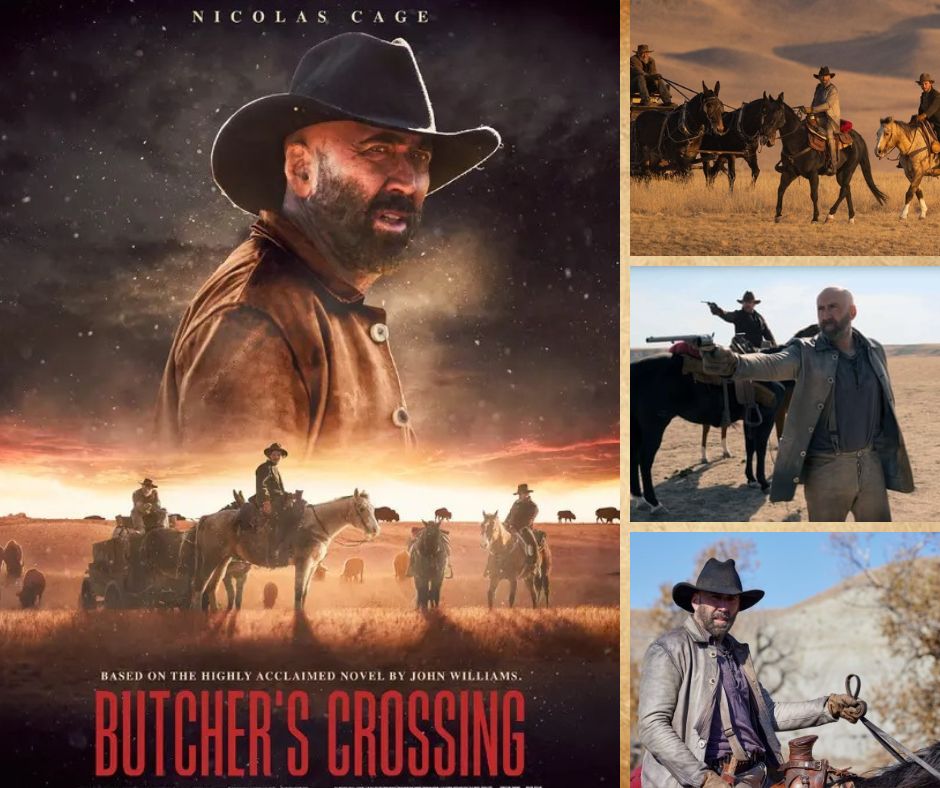Butchers Crossing (2023)

Butchers Crossing (2023) is a haunting, visceral Western drama that strips away the mythology of frontier life to reveal a raw and morally complex story of survival, obsession, and disillusionment. Directed by Gabe Polsky and based on the 1960 novel by John Williams, the film stars Nicolas Cage, Fred Hechinger, and Jeremy Bobb in a gripping tale set against the unforgiving wilderness of the American West in the 1870s.
Disenchanted with the comforts of elite Eastern society, young Will Andrews (Hechinger) journeys west in search of authenticity and purpose. He arrives in Butchers Crossing, a dusty Colorado outpost where civilization meets the edge of the wild. There, he meets the intense and mysterious Miller (Cage), a seasoned buffalo hunter who tempts Will with the promise of a legendary, untouched herd deep in the mountains.
Drawn in by Miller’s vision and charisma, Will finances an expedition into the heart of the wilderness. But what begins as a noble pursuit of nature and self-discovery quickly turns grim. The men are tested by brutal weather, isolation, dwindling supplies—and above all, Miller’s growing mania. As the slaughter of buffalo escalates, so too does the unraveling of the hunters’ minds, exposing the corrupting force of greed and the psychological cost of unchecked ambition.
“Butchers Crossing” doesn’t shy away from the bleak truths of the American frontier. It’s a meditation on the destructive hunger for dominance over nature, and the thin line between civilization and savagery. Through Will’s transformation—from wide-eyed idealist to hardened survivor—the film questions the price of “finding oneself” in a world that rewards violence and exploitation.
Cage delivers one of his most restrained yet chilling performances as Miller—a man fueled not just by profit, but by a near-religious obsession. Hechinger is equally compelling, embodying a character slowly awakened to the moral and physical horrors around him.
The cinematography is stark and sweeping, capturing the majesty of the wilderness and the cold indifference of nature. Snow-covered forests, endless plains, and desolate campfires serve as both backdrop and metaphor for the film’s emotional landscape. The sound design and pacing echo the stillness and tension of isolation, making even quiet moments feel heavy with dread.
Butchers Crossing is not your typical Western—it’s an unflinching, philosophical journey into the heart of darkness that challenges the glorified image of frontier conquest. With powerful performances and a slow-burning intensity, it offers a chilling commentary on exploitation, masculinity, and man’s fragile place in the natural world.
